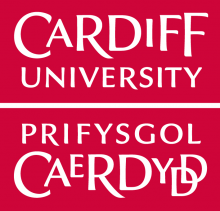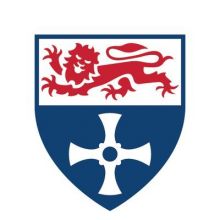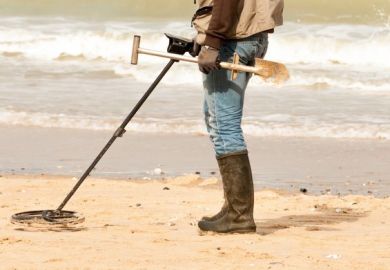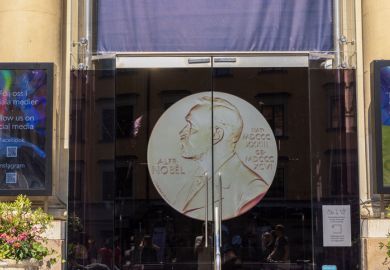Universities hoping to enter the top half of the Russell Group based on research prowess are likely to be disappointed because their position in academia’s unofficial pecking order seldom changes substantially, a study suggests.
In the analysis of how elite universities within the 24-strong group have fared against each other in the research assessment exercise since 1996, Newcastle University’s University and College Union branch found that institutions moved up or down by just one place on average between each assessment cycle.
For instance, Newcastle was ranked joint 19th in the Russell Group in last year’s research excellence framework based on its grade point average compared with 20th in 2008. It was 19th and 21st overall in the 2001 and 1996 assessments respectively.
The University of Liverpool also moved very little over the same 18-year period, fluctuating between 20th and 24th position, the analysis shows.
At the top end, Imperial College London, the London School of Economics and the universities of Oxford and Cambridge held the top four spots in the past four assessments.
When assessed on research power – in which GPA is combined with the number of staff submitted – institutions’ positions within the Russell Group also changed very little between exercises, the study said.
Academics at Newcastle compiled the comparison in response to their university’s new institutional goal of being in the top half of the Russell Group based on its results in the next REF.
It has adopted new “minimum expectations” and “aspirational” targets regarding grant income for research-active academics to help it achieve this end.
Other lower-ranked institutions within the Russell Group have also introduced performance management to improve their research output and league table position.
However, UCU leaders believe that their analysis shows that it is unrealistic to expect Newcastle to make a giant leap up the Russell Group standings given the modest improvements seen previously.
A Newcastle spokesman said that staff are worried about the use of league tables as a measure of staff performance.
“We would love to engage in a collective discussion about how to make Newcastle University better and how to know that is happening – that process has not happened so far,” she said.
Just three Russell Group universities managed to achieve major improvements in their research ranking within the group in recent years, the analysis suggest.
King’s College London jumped from joint 16th place to 6th on GPA and 11th to 6th on research power in the 2014 exercise. Cardiff University achieved a similar GPA improvement, although increased selectivity meant its research power ranking fell.
Queen Mary University of London’s leap from bottom place in the Russell Group to the top half between 2001 and 2008, is also one of the few times that an institution has significantly improved its position, the analysis suggests.
Robert Bowman, head of the School of Mathematics and Physics at Queen’s University Belfast, whose analysis of the REF put its cost at £1 billion, said that the “London effect” might explain some of these improvements.
“There is no doubt there is a massive gravitational pull of research funding to London and southeast England, so how are regional universities going to make inroads on research without access to that level of funding?” he said.
“Can a university expect to jump to a much higher position unless they are part of...big funding initiatives such as the Crick Institute or Northern powerhouse?” he added.
However, while he was “against targets imposed blankly on all staff”, Professor Bowman believed that “aspirational targets” could play their part in improving institutional performance.
“If you are an ambitious academic – and most people are – you will probably aspire to have one or two postdocs, which, with overheads, will cost about £80,000 a year each,” he said.
“If the aspiration is for each academic to raise resources towards their research, an income target north of £100,000 a year becomes obvious.
“If you can get another 25 per cent of staff to get a postdoc, or two, and related funding, then you might take performance to another level.”
A spokeswoman for Newcastle University said that it submitted about 80 per cent of eligible staff to the REF 2014.
It hoped “to increase this number and enter as many eligible staff as possible into the next REF”, while also increasing the average quality of submissions.
“If we achieve both these aims then we would meet our institutional objective of being in the top half of the Russell Group based on our analysis of our performance in the 2014 REF and an assessment of what degree of improvement was realistically achievable by 2021,” she added.
Russell Group rankings and how they’ve changed
| Institution | REF 2014 ranking by GPA | RAE 2008 by GPA | RAE 2001 ranking | RAE 1996 ranking | 2014 rank by research power | 2008 rank by research power |
| Imperial College London | 1 | 4 | 2 | 4 | 8 | 7 |
| London School of Economics | 2 | =2 | 4 | 3 | 28 | 29 |
| University of Oxford | 3 | =2 | 3 | 1 | 2 | 1 |
| University of Cambridge | 4 | 1 | 1 | 2 | 3 | 2 |
| Cardiff University | 5 | =16 | 7 | 10 | 18 | 15 |
| King’s College London | 6 | =16 | =15 | 14 | 6 | 11 |
| University College London | =7 | 5 | 6 | 5 | 1 | 4 |
| University of Warwick | =7 | 7 | 5 | 6 | 15 | 16 |
| University of Edinburgh | =9 | 9 | =12 | 8 | 4 | 5 |
| University of Bristol | =9 | =11 | =12 | 9 | 9 | 10 |
| Queen Mary University of London | =9 | 10 | 24 | 22 | 22 | 21 |
| University of Sheffield | =12 | =11 | 11 | 12 | 13 | 9 |
| University of York | =12 | 8 | 14 | 7 | 23 | 22 |
| University of Manchester | 14 | 6 | 8 | 15 | 5 | 3 |
| University of Southampton | 15 | =11 | 9 | 13 | 11 | 14 |
| Durham University | 16 | =11 | 10 | 11 | 20 | 19 |
| University of Leeds | 17 | =11 | 17 | 17 | 10 | 8 |
| University of Glasgow | 18 | 22 | 18 | 19 | 12 | 13 |
| University of Nottingham | =19 | 18 | 21 | 18 | 7 | 6 |
| Newcastle University | =19 | 20 | 19 | 21 | 16 | 17 |
| University of Exeter | 21 | 21 | 20 | 23 | 21 | 25 |
| University of Birmingham | 22 | 19 | =15 | 16 | 14 | 12 |
| University of Liverpool | 23 | 24 | 22 | 20 | 19 | 18 |
| Queen’s University Belfast | 24 | 23 | 23 | 24 | 17 | 20 |
POSTSCRIPT:
Print headline: Static league table casts doubt on targets
Register to continue
Why register?
- Registration is free and only takes a moment
- Once registered, you can read 3 articles a month
- Sign up for our newsletter
Subscribe
Or subscribe for unlimited access to:
- Unlimited access to news, views, insights & reviews
- Digital editions
- Digital access to THE’s university and college rankings analysis
Already registered or a current subscriber?

















